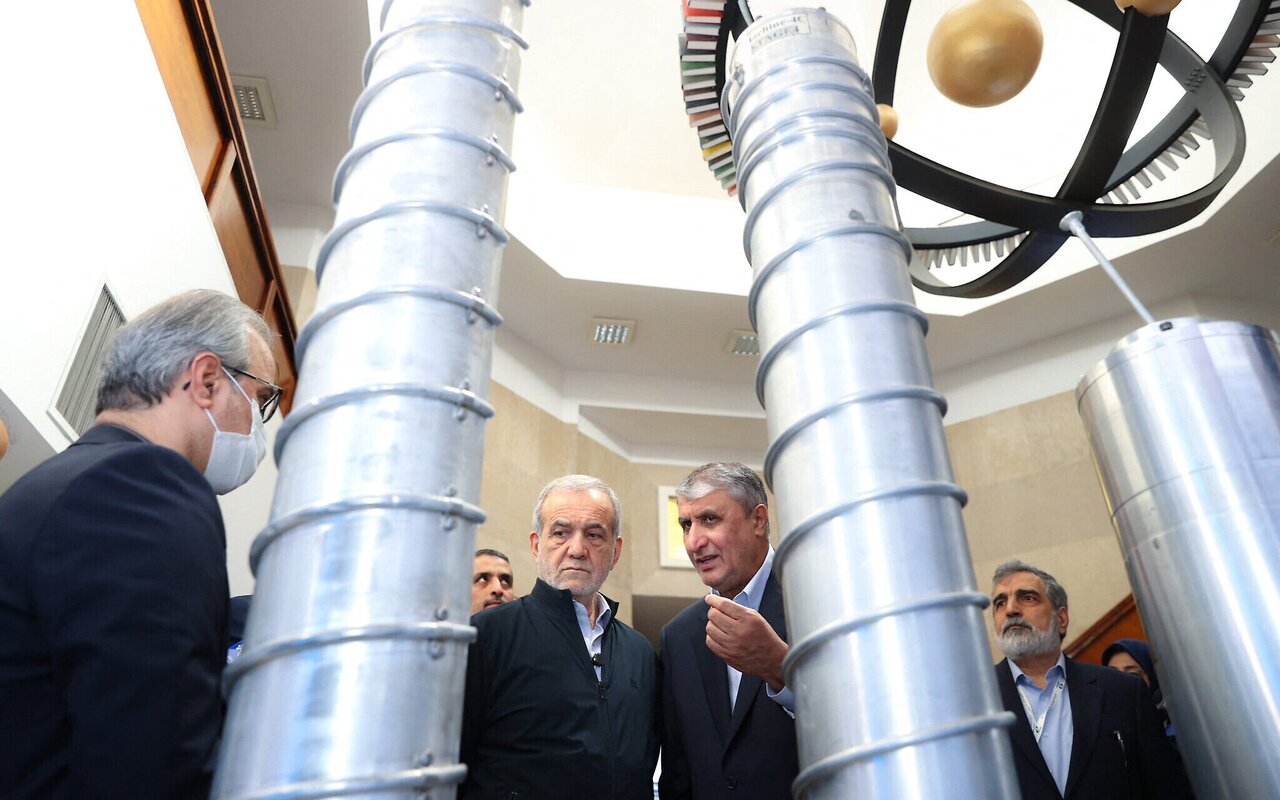Iran reclaims its nuclear program as an act of sovereignty and self-determination

MADRID – The recent interview of Iranian President Masoud Pezeshkian with Al Jazeera sheds light on how Iran perceives and defends its nuclear program amidst a turbulent regional landscape and constant international pressure.
Without resorting to demagoguery or hollow rhetoric, Pezeshkian made it clear that for Iran, the nuclear program is more than just a technological or military project: it is a concrete expression of sovereignty, self-determination, and national dignity.
In his statements, Pezeshkian emphasized that Iran will continue enriching uranium in accordance with international law, while also asserting that the country has no intention of developing nuclear weapons. “Our true strength lies in the intellect and commitment of our scientists,” he explained, conveying confidence in the collective knowledge that sustains the program—beyond the temporary damages suffered during recent confrontations with Israel.
This detail is essential to understanding how Iran conceptualizes its nuclear program: not as a threat to other countries, but as a sovereign right—an embodiment of the capacity to develop independent science and industry. For the Islamic Republic, to renounce this right would be to submit to foreign pressure and relinquish its autonomy in a world where its people have lived under siege for decades, facing continuous sanctions and threats.
Moreover, the nuclear program is rooted in a tradition that merges politics, culture, and theology. For Iran, sovereignty is not merely a matter of statehood—it is also an ethical and spiritual responsibility. President Pezeshkian made it clear that this project is not limited to technical concerns; it symbolizes the collective right of the Iranian people to shape their future and to resist any attempt at domination or dispossession.
Pezeshkian was candid in stating that while parts of the nuclear infrastructure were damaged during the recent confrontation with Israel, the attack did not affect Iran’s “real power”: the knowledge and scientific commitment that sustain the program. His discourse reflects a deeper notion of resistance that binds together technology, spirit, and politics.
The military context threads through the interview. Pezeshkian did not hide the fact that Iran is prepared to respond to any new aggression, yet he also expressed caution regarding the future of peace in the region. In his view, the pause in conflicts with Israel remains fragile as long as Iran’s sovereignty is not genuinely and durably respected. This message, though firm, is not a belligerent outburst—it is the reaffirmation of a right that Iran considers non-negotiable: the defense against aggressions that, for many years, have been waged on its soil and against its people.
This framework reveals a different perspective on what “security” truly means. For Iran, security stems from mutual recognition and respect for self-determination—not from domination or the unilateral control that has long shaped international relations. The president stressed that Iran is open to resuming dialogue, but that such talks must be grounded in equality and the unconditional recognition of Iran’s red lines.
This approach, far removed from mere pragmatism, is anchored in a much deeper foundation: a political and theological thought that weaves together community, sovereignty, and justice into a single, indivisible fabric.
The interview also casts into sharp relief the contrast with dominant Western narratives, which often portray Iran as a problematic and threatening actor, and its nuclear program as an imminent risk. For the Islamic Republic, however, much of that narrative is laced with colonial prejudices that deny some nations the right to consciousness and autonomous decision-making. In fact, Iran’s defense of its nuclear program becomes a symbol of a historical demand for respect and dignity—one that far exceeds the boundaries of the energy sector.
The fact that Pezeshkian clearly stated Iran does not seek nuclear weapons underscores the country’s intent to project a responsible image in the international arena, while also reflecting the complexity of a policy that balances multiple tensions: defending scientific and technological rights while simultaneously rejecting any offensive aspirations that could be used as a pretext for sanctions or attacks.
One important aspect of the interview is that it did not shy away from addressing Israeli aggressions, which Iran sees as part of a broader geopolitical strategy aimed at weakening its sovereign project. This conflictual framework marks a fundamental difference from other worldviews: for the Islamic Republic, war and peace are not simply moods or temporary phases—they are moments within a continuous struggle for sovereignty and collective existence.
In sum, Pezeshkian’s interview is a statement that challenges simplifications and dominant narratives about Iran and its nuclear program. It is, on one hand, an affirmation of sovereignty without renouncing diplomacy and negotiation, and on the other, a political-theological gesture that weaves memory, community, and dignity into a unified whole. Against a global narrative that often frames Iran as a source of tension, the presidential voice invites us to read these events from another perspective—one that recognizes the struggle of a people to exercise their right to exist and to decide freely.
Iran’s nuclear sovereignty, therefore, cannot be reduced to a technical or security issue. It is an emblem of resistance and self-determination that rests upon a broader ethical-political horizon, where defending against aggression is simultaneously a spiritual and political act. And this is a message that, in order to understand the region’s future and that of the world, deserves to be heard and analyzed with rigor and respect—away from the simplifications that only deepen divisions and conflicts.
Leave a Comment